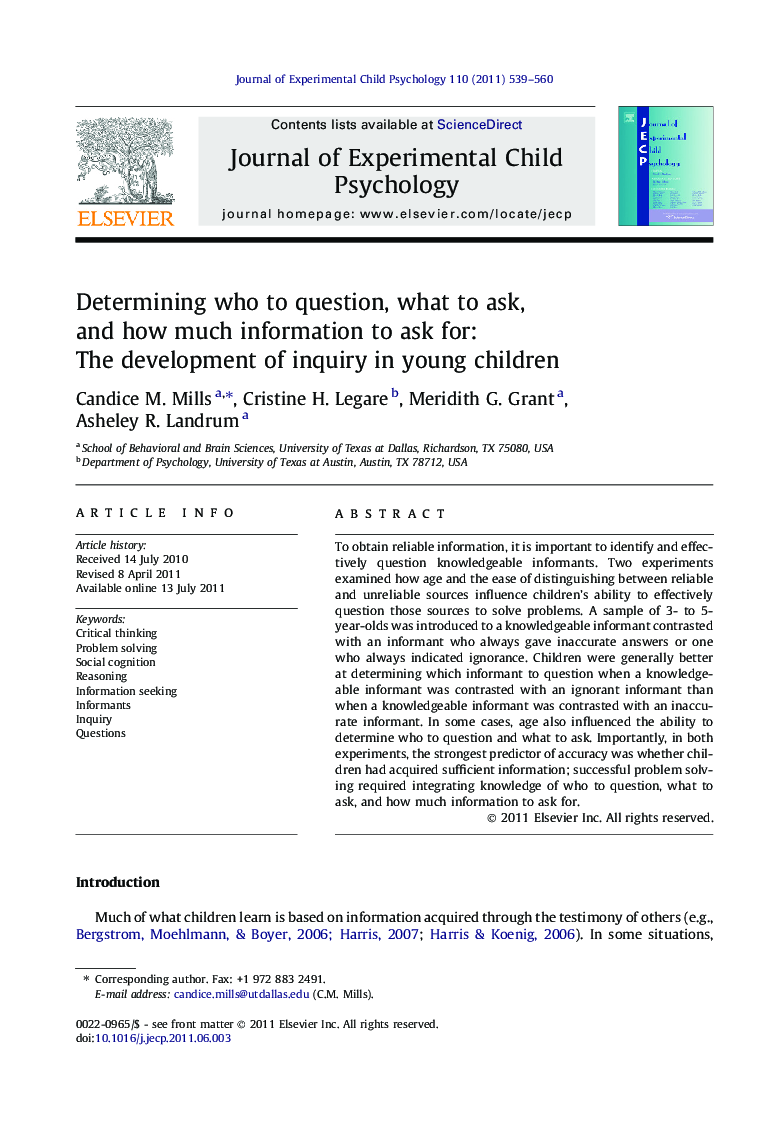| Article ID | Journal | Published Year | Pages | File Type |
|---|---|---|---|---|
| 918356 | Journal of Experimental Child Psychology | 2011 | 22 Pages |
To obtain reliable information, it is important to identify and effectively question knowledgeable informants. Two experiments examined how age and the ease of distinguishing between reliable and unreliable sources influence children’s ability to effectively question those sources to solve problems. A sample of 3- to 5-year-olds was introduced to a knowledgeable informant contrasted with an informant who always gave inaccurate answers or one who always indicated ignorance. Children were generally better at determining which informant to question when a knowledgeable informant was contrasted with an ignorant informant than when a knowledgeable informant was contrasted with an inaccurate informant. In some cases, age also influenced the ability to determine who to question and what to ask. Importantly, in both experiments, the strongest predictor of accuracy was whether children had acquired sufficient information; successful problem solving required integrating knowledge of who to question, what to ask, and how much information to ask for.
► Problem solving requires identifying reliable sources and asking good questions. ► Three-, 4-, and 5-year-olds directed questions to two informants to solve problems. ► Older children were often better at determining whom to question and what to ask. ► Children were generally more successful when one informant was clearly ignorant. ► Whether children had acquired enough information predicted problem-solving success.
